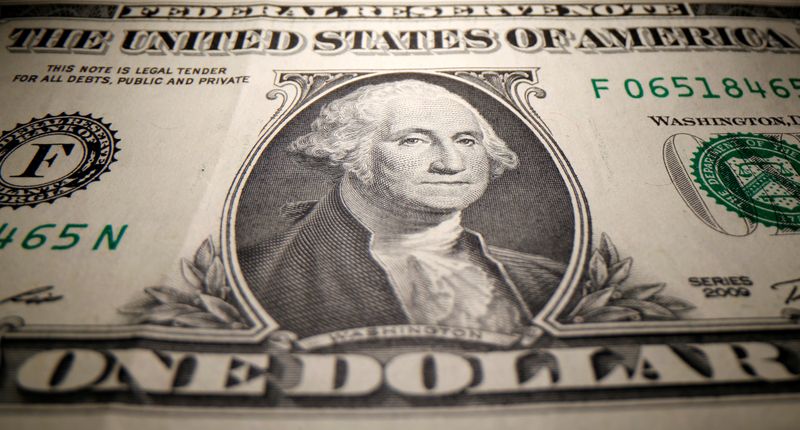By Kevin Buckland
TOKYO (Reuters) – The dollar drifted near the middle of its range of the past month versus major peers on Thursday, as traders looked to next week’s Federal Reserve policy meeting for indications on how soon the U.S central bank will start to taper stimulus.
The New Zealand dollar jumped after the economy grew at a much faster pace than expected, reinforcing the view that the central bank will start lifting interest rates despite a recent outbreak of the coronavirus.
The kiwi was 0.23% higher at $0.7125, after briefly surging as much as 0.47%.
The dollar index, which measures the currency against six rivals, was at 92.483, little changed from Wednesday.
It reached a two-week high of 92.887 at the start of the week, only to drop to a one-week low at 92.321 on Tuesday after a softer-than-expected inflation report. Its low for the month was 91.941, hit on Sept. 3, when payrolls data disappointed.
“We’re waiting for the FOMC next week – that remains the key focus,” said Shinichiro Kadota, senior FX strategist at Barclays (LON:BARC) in Tokyo. “I don’t think the dollar is going to go too far in either direction (before that).”
The Federal Open Market Committee’s (FOMC) two-day policy meeting ending Sept. 22 should provide some clarity on the outlook for both tapering and eventual interest rate hikes.
Tapering typically lifts the dollar as it suggests the Fed is one step closer to tighter monetary policy.
It also means the central bank will be buying fewer debt assets, in effect reducing the number of dollars in circulation and increasing the currency’s value.
The dollar bought 109.33 yen, little changed from Wednesday, when it slid to a six-week low of 109.110.
The euro was flat at $1.1816, consolidating between the month’s high and low of $1.1909 and $1.17705.
The yen’s strong performance on Wednesday may have been helped by foreign flows into Japanese stocks with the Nikkei reaching a multi-decade high this week, as well as covering of short positions, Kadota said.
NORWAY’S CROWN
Elsewhere, Norway’s crown rose slightly to 8.5710 per dollar, edging back toward the more than two-month high of 8.5598 reached overnight amid a rally in oil prices.
Against the euro, the crown touched the strongest since June 25 at 10.1119.
“EURNOK is one of the preferred exposures to play a rising crude price, and we’re seeing a solid bearish trend here,” Chris Weston, head of research at broker Pepperstone in Melbourne, wrote in a note to clients.
“If Brent and WTI crude are headed for their respective double tops then EURNOK is going one way in my view.”
The Australian dollar was little changed at $0.7335.
The country’s jobless rate unexpectedly fell to 4.5%, but the statistics bureau said the change reflected a drop in the participation rate rather than a strengthening of the labour market.



